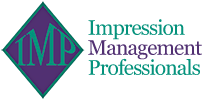My daughter had a small rash on her hands on Saturday. We went to her pediatrician and he said it was probably just an allergic reaction. Two days later her hand looked like she had stuck it in a vat of hot oil. So this time, we brought her to a skin doctor. Now there are two doctors at this office. Both are highly skilled and knowledgeable. Ce’Anna went in and Dr. Holt looked at her hand and gave some possible options of what it was and that maybe a skin graft should be done to determine what it was. She then went and brought in Dr. Groth. He took one look at my daughter’s hand and said, “She has shingles.” When the other doctor asked if she should do a skin sampling to ensure it was, he said, “You can, but it is shingles.”
All three doctors have gone through extensive training and have a ton of knowledge in their brains. While the other two are doctors, Dr. Groth is truly an expert. He can instantly look at almost any skin problem and in under 2 minutes tell you what it is.
So does expertise mean he knows more or has more book knowledge than the other doctor? No. In actuality, experts make things look so simple because they can intuitively see things. Their brain has the ability to link things together in ways that elude others.
Now this intuition doesn’t just happen. It is actually the result of them growing a crucial part of their brain called the working memory. The bigger your working memory is the more information you can take in simultaneously, compare it to other things in your memory, and then come up with a correlation. If your working memory isn’t expanded, what you have is book knowledge but you don’t have that gifted intuition.
You can actually expand your working memory. Outcome Thinking helps you expand that working memory by helping you link your prefrontal cortex and your amygdala so you put intelligence to your emotions. As you work on expanding that link, you automatically start expanding your working memory. Why? Because your working memory is that part that takes the emotions, holds on to them, examines them, applies intelligence to them and then creates an action.
Here are some quick tips to get you started to expand your working memory:
1. Work on cross word puzzles, mensa games.
2. Read two different books and then try to link the learning between them together.
3. Look at three of your last client or team meetings. What similarities can you draw out? What differences? How would you blend them to make the perfect meeting?
4. Read Outcome Thinking: Getting Results Without the Boxing Gloves and reflect on incidents in your life that are blocking your brain or keeping you stuck in old habits.
5. Check out our website for the last webinars that will show you how to expand your brain by linking luck, intentions, power and coming up…decision-making to grow your thinking.
Don’t settle for a half-baked brain. Get the full use of yours by expanding your Working Memory today!




I was just having a conversation over this I am glad I came across this it cleared some of the questions I had.
This post is interesting.
hey, nice blog…really like it and added to bookmarks. keep up with good work
Congratulations on having one of the most sophisticated blogs Ive come across in some time! Its just incredible how much you can take away from something simply because of how visually beautiful it is. Youve put together a great blog space –great graphics, videos, layout. This is definitely a must-see blog!